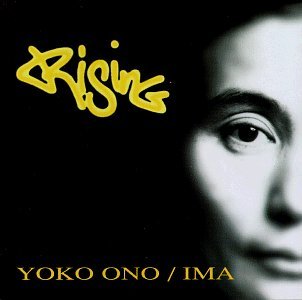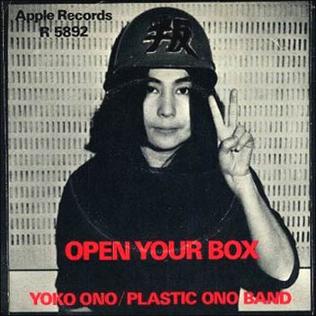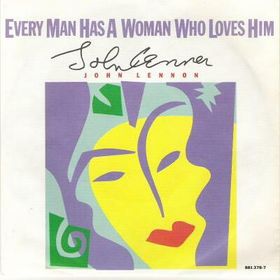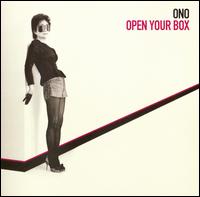
Yoko Ono is a Japanese multimedia artist, singer, songwriter, and peace activist. Her work also encompasses performance art and filmmaking.

Some Time in New York City is a part-studio, part-live double album by John Lennon and Yoko Ono as Plastic Ono Band that included backing by the American rock band Elephant's Memory. Released in June 1972 in the US and in September 1972 in the UK on Apple Records, it is Lennon's sixth album to be released under his own name, and his fourth with Ono. Like Lennon's previous solo albums, it was co-produced by Lennon, Ono and Phil Spector. The album's agitprop lyrics are politically charged compared to its predecessors, addressing political and social issues and topics such as sexism, incarceration, colonialism, and racism.

It's Alright (I See Rainbows) is the sixth solo album by Yoko Ono, and her second release after the murder of husband John Lennon. As a variation of a theme concerning its predecessor, the back cover features a transparent image of Lennon in a then-contemporary photo of Yoko and Sean, depicted in Central Park. Released in 1982, all songs were written, composed, arranged, produced, and sung by Ono. It charted at #98 in the US.

Onobox is a 1992 comprehensive 6-disc collection of Yoko Ono's work from 1968 to 1985. The discs are grouped by era and theme. Disc one centers around the albums Fly and Yoko Ono/Plastic Ono Band, while Disc two features nearly the entirety of Approximately Infinite Universe in a different running order and most of the tracks remixed exclusively for this boxed set. Disc three features the entire Feeling the Space project, which was originally conceived and recorded as a double album before being edited down, while disc six is the previously unreleased 1974 album A Story, which was later reissued separately with an expanded track listing, along with the rest of Ono's back catalogue.

Season of Glass is the fifth studio album by Yoko Ono, her first solo recording after the murder of her husband John Lennon. Season of Glass, released in 1981, reached number 49 on the US Billboard 200 albums chart, making it Ono's highest-charting solo album to date.

A Story is an album by Yoko Ono, recorded in 1974, during the "lost weekend" sessions in which John Lennon produced Walls and Bridges. It was unreleased until the 1992 box set Onobox, which featured material from A Story on disc six. It was only properly released as an individual album 23 years later in 1997, with the reissuing of Ono's back catalogue by Rykodisc. The reissue added three bonus tracks, including home demos and a live recording from the Starpeace tour.

Yoko Ono/Plastic Ono Band is the debut solo studio album by Japanese artist and musician Yoko Ono, released on Apple Records in December 1970 alongside her husband's album John Lennon/Plastic Ono Band. The album features Ono's vocal improvisations accompanied by the Plastic Ono Band, with the exception of "AOS", on which she is backed by the Ornette Coleman Quartet.

"Walking on Thin Ice" is a song by Yoko Ono, released in 1981. She and John Lennon concluded the recording of the song on December 8, 1980. It was upon their return from the recording studio to The Dakota that Lennon was murdered by Mark David Chapman. Lennon was clutching a tape of a final mix of the song before it was mastered when he was shot. The song was both a critical and commercial success for Ono.

Rising is a 1995 album by avant-garde artist Yoko Ono. Released on 7 November by Capitol Records, it features the backing band IMA, which included Ono's son Sean Ono Lennon, Timo Ellis, and Sam Koppelman. It was her first album of new material since 1985's Starpeace. The album has sold 11,000 copies in the U.S. to date.

Fly is the second album by Yoko Ono, released in 1971. A double album, it was co-produced by Ono and John Lennon. It peaked at No. 199 on the US charts.

"Hell in Paradise" is a song by Yoko Ono from the 1985 album Starpeace. The lyrics are about mankind's perceived idea of hell, despite living in the paradise that Ono considers to be planet Earth. After "Walking on Thin Ice", it was her biggest hit of the 1980s, charting at number 16 on the US dance chart. Ono went on hiatus after Starpeace; this would be her last proper single until 2001's remix of "Open Your Box".

"Open Your Box" is a The Plastic Ono Band song by Yoko Ono, released on 12 March 1971 as the B-side of John Lennon's single "Power to the People". Lennon played guitar and produced the song.

Approximately Infinite Universe is the third solo album by Yoko Ono, released in early 1973 on Apple Records. A double album, it represents a departure from the experimental avant garde rock of her first two albums towards a more conventional pop/rock sound, while also dabbling in feminist rock. It peaked at number 193 in the United States. The 1997 CD reissue on Rykodisc added two acoustic demos of songs from this era, that were later released on 1981's Season of Glass. It was released again by Rykodisc in 2007.

Feeling the Space is the fourth solo album by Yoko Ono, released in 1973. It was her last one to be released on Apple Records.

"Every Man Has a Woman Who Loves Him" is a song by Yoko Ono from the album Double Fantasy with John Lennon. Other versions were released, including one released as a single where Ono's voice was removed, leaving what had been Lennon's backing vocal as the primary vocal.

Open Your Box is a remix album by Yoko Ono which was released on April 24, 2007. It is a compilation of her successful series of remix singles released since 2001 with the addition of several new mixes. Collaborators include Basement Jaxx, Felix da Housecat and the Pet Shop Boys. "You're the One" was released as a single and reached No. 2 on the Billboard Hot Dance Club Play chart in the United States. Ono achieved a number one on the Hot Dance Club Play chart in August 2008 with "Give Peace a Chance".

"Give Me Something" is a song by Yoko Ono, originally released in 1980 on John Lennon and Ono's duet album Double Fantasy. The song appeared in Ono's off-Broadway musical New York Rock and her compilation albums Walking on Thin Ice and Onobox. In 2010, the Junior Boys remix of the song was released as a free download on MySpace Music and RCRD LBL.

Yes, I'm a Witch Too is a collaboration and remix LP from Yoko Ono. The street date is February 19, 2016 via Manimal Vinyl Records. The LP features remixes and collaborations from Death Cab for Cutie, Moby, Portugal. The Man, Sparks, Peter Bjorn and John, Miike Snow, Sean Lennon, Cibo Matto and others. It is a sequel to 2007's Yes, I'm a Witch.

Japanese multimedia artist, singer and songwriter Yoko Ono has released 14 studio albums, eight collaborative albums, and 40 singles as a lead artist. Married to English singer-songwriter and the Beatles member John Lennon until his murder in 1980, she has contributed several B-sides to his singles from late 1960s to the 1980s. Ono released her debut studio album Yoko Ono/Plastic Ono Band in December 1970, faring poorly in the United States. Similar moderate success was achieved with her follow-up records Fly (1971) and Approximately Infinite Universe (1973).



















